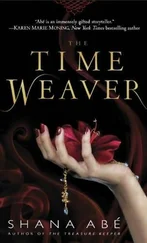I shall leave up to you whether or not to share this journal with anyone else in the tribe. I said good-bye to you and the children tonight in your beds, although you never saw me. It was a test, and I passed. So I must no longer delay.
No need to reflect upon all the horrors of tribal punishment should I get caught. We both know the consequences for disobedience of the laws, so suffice it to say, I do not plan to be caught.
I wish I could better explain to you why I'm doing this. I wish I had the wit or the words to describe to you why I'm chancing nearly all that I love with this decision. I must make do with this: You have always been the other side of me, my twin, my friend and rival. I've watched you blossom as a wife and mother without a scrap of envy. Yet it would be a lie were I to write here that I did not long for the same as you. Hayden was that promise for me, that hope. He was the key to my future here in Darkfrith: my husband and helpmate, the father of my children.
You will not be surprised, I think, when I tell you that I've always felt slightly apart from all the rest of the tribe, just a step out of tune with everyone else. Hayden offered me the chance to find my place in the music here. For perhaps the first time, I felt that with him, despite my differences, I could belong.
I do not know if this is the definition of true love. All I know is that I must find him. I must discover what's happened to him. I will bring him home again if I can.
For ages we've been instructed to guard our place here, to grow our roots into this soil. But against our will we've been thrust into this new age; the human world has evolved without us. The marquess and his wife, Lady Amalia, Luke, and Jeffery—all scattered to the winds.
And now Hayden has vanished. Rhys has vanished.
I'm going to vanish too.
Be safe, Cerise.
Forever love,
Your twin, Mlle. Zoe C. Lane
August 1, 1782
Paris
September 1782
He'd been following her for three long blocks down the Seine. She did not walk quickly, which was one of the things he noticed first about her. Her pace was slow, often uneven; a demoiselle who perhaps had partaken of too much champagne with her dessert.
And shewas a demoiselle—or at the very least, a demimondaine. The sheen of her gown—satin without question, glimmering taupe by the smoky light of the street lanterns. The coat of fine sky-blue velvet she wore over it, edged with silk tassels that swayed in time with her oddly graceful gait. Even her hat, wide-brimmed and elaborately feathered, ropes of paste pearls draped around the band, the bow tied smartly beneath her chin. If she was a prostitute, she was an extremely successful one. Everything about her spoke of Means.
No question, there were other pigeons to be found tonight. With its theatres and operas and vendors, the musicians playing ballads on the bridges, Tuileries was always the most likely place in town to bump into a careless soul who didn't keep a firm hand on his purse, especially after the shows let out. But there was something about this girl, some compelling, mysterious pull from her . once she'd caught his eye, he found he couldn't look away.
She had a reticule over her left wrist, blue like the coat, with nice thin satin cords. Good enough.
She kept her own head down, watching the gutters and paving stones of Quai des Tuileries instead of her surroundings, pushing modestly through the crowds. Every so often her face would lift; it was only then he'd gain a swift glimpse of her nose, of her chin and lips. Dewy youth, lush beauty. He very much looked forward to seeing the rest of her.
But for now, Basile maintained his distance. He would not be so imprudent as to risk a glance directly into her eyes. It would not do to let her know he was studying her, and besides, there were still too many people about.
Her wig shone beneath the lanterns as well, the powder like none he'd seen before. He was not a man of great fashion, but he knew enough about wigs to recognize that hers was expensive. Definitely human hair, not horse, very fair and almost eerily natural. It wasn't even gray, but instead a glossy, glinting white. Two long, perfect coils spiraled down her back, bouncing like the tassels with every step, most fetching against the blue. It drew a man's eyes upward, to the nape of her neck. To the way the coat hugged the pretty slope of her shoulders.
Ah, the rich. What pleasures were denied them?
And yet as far as he could tell, his demoiselle walked the Quai alone, without a maid, without a footman. Without even a cabriolet to follow at a discreet distance. If she was meeting a lover, she was clearly reluctant about it. Perhaps the man was a toad.
The thought made Basile smile.
Over the clatter of horses and mules and carriages along the boulevard rose the soothing smack of the river pushing at her banks, the occasional echo in galld of the boatmen drifting below. The autumn night smelled of damp leaves and burning coal and steaming fresh manure. The clouds pressed low in the sky, shrouding the jagged points and peaks of the city in wet, misty soot.
The demoiselle slowed yet again. This time when she raised her head, it was to take in the sudden line of trees before her. They had reached the far end of the gardens of the Palais des Tuileries, enclosed by a wall taller than two grown men, the tips of chestnuts and black oaks waving their branches over it like hungry fingers in the night.
She muttered something he couldn't quite hear. It wasn't the first time she'd whispered words to herself, another peculiarity that had snagged his attention away from the pockets of the other nobles who packed the boulevards. It seemed to him that this time she asked herself a question. He watched as she gave a short nod—an answer to herself, no doubt—then strolled on.
The nearest gate to the gardens was yet another half block away; Basile knew it well. It was composed of thick rusty iron bars and a much more formidable new padlock, and sure enough, it was to there that the demoiselle wandered, weaving past a pair of interested army officers without even a sidelong look. The gate was in shadow. She walked close, one gloved hand closing upon a bar, and stood without moving.
Basile drew back to give her space, leaning a shoulder against the nearest lantern pole, glancing around them, considering the moment. It was growing late, and the hordes along the Quai were finally beginning to thin. A trio of merchants clacking their walking sticks strode past, arguing about cards and a woman named Ariane. From the other direction two sedan-chair men huffed along more slowly, cheeks and jowls flushed, the tall black lacquered wood of the box gripped between them beginning to bead with the moisture of the night.
A face peered back at him from beyond the window; kohled eyes, pasty flat skin; the lace curtain was quickly dropped.
When Basile looked again to the demoiselle, she was gone. The gate swung open, very gently, upon its hinges.
He straightened in surprise, then quickly looked around once more. But she hadn't continued down the Quai, and she hadn't retreated back toward him.
The gate still hung agape, a clear invitation.
So Basile accepted it. When he was near enough he discovered that the lock had been broken somehow, the bolt completely bent free of the base. The entire contraption had been dropped to the dirt just inside the gate. Very strange. The girl must have noticed the same thing and let her curiosity—or those voices in her mind—lead her into the gardens.
He'd been here before, of course. He knew all the best dark places of the city. The gardens of the old palace were officially forbidden to the common people who swarmed the streets surrounding them, but thrice a year the gates were opened for parades, and even the lowest of the city filth was allowed a visit inside.
Читать дальше












